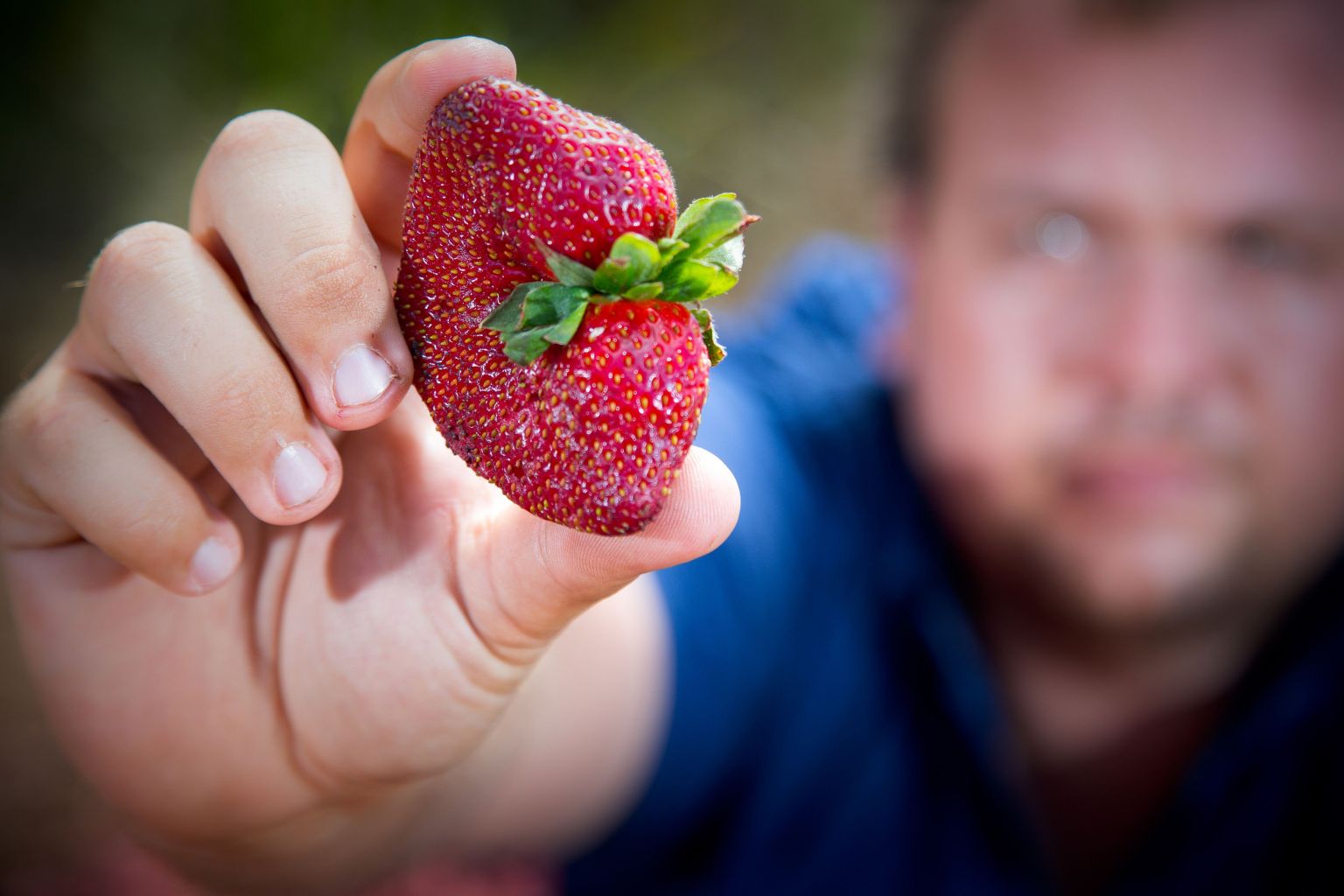Needles found in Australian strawberries prompt questions about food safety
Sign up now: Get insights on Asia's fast-moving developments

The crisis has forced growers in Australia to dump millions of strawberries and raised questions about the adequacy of food safety measures.
PHOTO: AFP
Follow topic:
SYDNEY - In Australia, it has become an act of patriotism to buy a punnet of strawberries.
Everyone - from Prime Minister Scott Morrison to popular cooking websites - has been urging people to keep eating strawberries to assist farmers and to ignore a food contamination scare in which sewing needles have been found in strawberries and other fruits.
Mr Morrison has encouraged Australians to eat pavlova, a popular meringue-based dessert. He tweeted a recipe last week, saying: "Support our strawberry farmers and make a pav this weekend (or sooner)."
The calls have prompted people to share innovative strawberry recipes online, including thick shakes that use a punnet per glass.
In the town of Bundaberg in the state of Queensland, strawberry growers went ahead with a festival to celebrate the fruit last week, attracting hundreds of people.
"We are sending a message to those twits that think they can damage a fantastic industry," Bundaberg mayor Jack Dempsey told ABC News.
The crisis has led to plunging sales and forced growers to dump millions of strawberries. It has also raised questions about the adequacy of food safety measures.
Australia has some of the world's toughest import and biosecurity measures. But some experts say there are still vulnerabilities, and tighter controls may be needed to prevent deliberate acts of sabotage.
Food safety expert Melissa Fitzgerald from the University of Queensland told The Straits Times that the fresh food sector should consider introducing preventive measures such as metal detectors and X-ray machines.
These are already in place for processed foods, she said, but they may need to be extended to foods such as strawberries which go directly from growers to markets or retailers.
Professor Fitzgerald said the industry may also need to consider tamper-proof packaging for some fresh foods. The process of recalling food also needs to be reviewed, she said, noting that the initial recall following the scare was issued to distributors, but not to consumers and retailers.
"We need to look at the implications for health and safety and for our reputation... We have seen what can happen and I suspect there will be other people copying that."
Indeed, there have been copycat cases since the first needle was found in a punnet of strawberries in Queensland earlier this month. There have been more than 100 reports of needles found in fruits in Australia, including in bananas, mangoes and apples.
The crisis has even spread to New Zealand, where three needles were discovered in a punnet of strawberries imported from Western Australia.
The original sabotage was believed to have targeted three brands in Queensland. Some farmers believe it may have been a vendetta by a disgruntled person involved in the industry.
The Queensland Government has pledged A$1 million (S$991,840) to help struggling farmers and has offered a A$100,000 reward for any information that leads to a conviction. A team of 100 police officers are investigating the crime.
Some farmers have blamed state police forces and segments of the media for overhyping the crisis and leaving consumers terrified.
"I think it's fair to say that the rhetoric from some jurisdictions has actually exacerbated the problem and potentially led to copycat crimes," Ms Rachel McKenzie from Queensland horticultural body Growcom told ABC News last week.
"We have a situation where hysteria and hyperbole have outrun pragmatism."
The health authorities have urged consumers to cut strawberries before eating them. This has led to a catchphrase repeated by MPs and the media in support of farmers: "Cut them up, don't cut them out".

